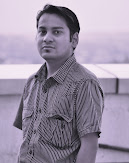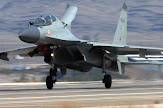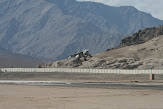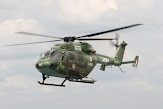Last week saw political temperatures rise in one of the capitals of our immediate neighborhood. The headlines were ripe with first, the sacking of the Army Chief of Nepal by the Cabinet, and then the subsequent re-instatement; and yet again the resignation of the popular Prime Minister of the country. The spate of events led to uncertainty about the future of democracy in the country, and also jeopardized the already fragile democratic institution in that country. While factions and parties have their claims and counter claims about the legitimacy of the respective stands taken, I would like to point out some of my observations which I see as the ones, most pertinent to solving the issue at hand.
The sequence of events which led to sacking of the General
Here, the Prime Minister was of the view that the General had undermined civilian supremacy by refusing to toe the verdict of a democratically elected government. The reasons for taking the line were,
a) Refusal of the General to accept the Government’s verdict on sacking eight Brigadiers of the Nepal Army.
b) The General authorized the filling up of upto 3000 vacancies of the Nepal Army in violation to the ceasefire agreement reached with the Maoist forces.
c) Refusal of the Nepal Army to participate in Annual Games which were manipulated midway to enable the participation of Maoist Cadres.
d) And most importantly, the staunch refusal of the General to integrate his Army with the Maoists which he claimed as a politically indoctrinated force, which would have jeopardized an independent and impartial functioning of the Army.
Let us now analyze each issue case by case.
a) The key to having an impartial and independent dept in any branch of the Government is to providing it with a degree of autonomy. The dept should have an independent functioning where the Head of the Dept directly reports to the elected head of the Government. The political leadership in turn should desist from interfering in the day to day functioning of the Dept, thus to enable that the right people who are incharge of the day to day affairs of that Dept are as much responsible as accountable to working of the Dept. This is more so important in case of powerful forces such as the military which because of their trained and motivated human resource can easily be manipulated to serve vested interests should they be used to. Hence, in modern democracies, the political representatives desist from interfering in the functioning as well as the inner leadership of the Military, and instead rely on the Army General as a single point of contact with the force. All decisions pertaining to the functioning of the Army as well as planning and budgeting are done by the Army Generals themselves with the political appointee directly working with the Army Chief.
In case of Nepal Army, the political leadership clearly violated this protocol and went into sacking of the eight Brigadiers without the concurrence of the Army Chief who was responsible for his men. In essence, the political leadership breached the democratically laid out norm and interfered in the working of the Armed Forces which as yet was an independent institution of the Government.
b) The General had authorized the recruitment of the Army in violation of the peace deal signed by the political parties and the Maoists and hence, the Government had a legitimate authority to seek explanation from the Army Chief and thus reprimand him for the violation.
c) The refusal of the Nepal Army to participate in the Annual Games was justified as the Maoists Government had manipulated the laid down norms and included Maoist cadres to participate in the national event at a later stage. This amounted to open manipulation of the state machinery, and hence would have been unacceptable to any participant of the said games, let alone the Army.
d) The most brazen violation of the authority of the Government came in the way of refusal of the Army Chief to integrate what he called politically indoctrinated volunteer force, into a clean and impartial national Army. While analyzing the situations here, the Army Chief cannot be totally blamed for the impasse. He is correct in taking a stand to oppose the dilution of his independent, motivated force which is solely meant for the purpose of protecting the territorial integrity of Nepal with a political indoctrinated force whose sole purpose is to convert the Country from a Democratic country, into a communist indoctrinated people’s republic. It is imperative for him to maintain his force’s morale and discipline, and integrating his highly trained and professional force with a non-professional Insurgent Army would not only adversely affect the morale and professionalism of the army but also lead to politicizing the Army so much so, that it turns into a private army run by a political party. This would not only have an affect on the Army, but the nation itself. As mentioned elsewhere, the Army is one of the most powerful tool of the state, and if used adversely to further one party’s political objectives, it can very well turn a country from a democratic free republic into an authoritarian dictatorship, much to the wishes of the party that controls it. Therefore it is imperative for a National Army to remain outside the control or interference of any political party.
Moreover, integrating a volunteer force also requires its rank and file to be integrated into the Army, and one such proposal of inducting ex-maoist commander as a Major General into Nepal Army would be something no self-respecting Army officer would ever accept. How could a commissioned officer sworn to protect his country against all enemy foreign or domestic, and who has served his force for over 25 years suddenly take orders from a untrained, unprofessional personality who had till recently been living in the jungles as a terrorist, and who had little over 10 years of any combat experience as an insurgent. This would not only be undermining the professional integrity of the force but also ridiculing the dedication, the sacrifice and the service he and others like him have made for the institution of the Army and his motherland. This is something no self-respecting individual let alone an Army man would ever accept. In contrast for whatever may be claimed, the Maoist fighters are still, a force of insurgents who owe their allegiance to a Maoist ideology of grabbing state power, and who till the other day were terrorizing people to accept their dichotomy.
However, having said that, it is as much the fault of other political parties who entered into an agreement with the Maoist parties without ever consulting or taking consent of the Military brass. The Maoists signed an agreement with the then political parties, who were or seemed to be in power. They signed a treaty and it was a duty of the signatories to honor it. The institution of the Army was never consulted while signing the agreement and hence is not obliged to accept it. Yet, the issue could have been amicably solved by dialogue and by accommodating the Ex-Maoist fighters into some other para-military force who would be subservient to the Government and yet would not interfere with the institution of the Army.
Having seen all the points of contention it is obvious to assume that all sides had committed some errors and excesses in their own functioning. While the Army has remained fiercely stubborn in remaining independent and opposing all forms of interference into its working, the Maoist party which like any other party or more has tried to influence the Army, as well as the whole state to further its influence in power. While the extent of all parties to remain democratic can be questioned according to the merits and demerits of each case, what is clear is none of them, least of all the Government has been democratic in its style of functioning. In such case, the call of the Prime Minister that the Army had undermined civilian supremacy by refusing to follow orders of the Cabinet seems far fetched. The PM should take note that democracy doesn’t just mean winning ballots. It means, giving voice to all parties to raise valid grievances. In this case, the Army Chief was right in protecting his turf and force from unnecessary political influence which the party in power exercised. Also, the PM and his party refused to accept other political party’s opinion of not sacking the Military chief and took it as a purpose to take on the Military head on. This amounted to more of ascertaining one’s power and supremacy over the other rather than a functioning of a true democrat. Maybe a party which has only very recently adhered to democracy and who till recently believed in power flowing from the barrel of the gun cannot understand it, but democracy cannot just come by ascertaining civilian supremacy but by encouraging free speech, accepting consensual views, free and frank expression of opinion on public policies by functionaries occupying all echelons of the Government and most of all by accepting dissent as a way to functioning of a democracy.
If at all the Prime Minister is so determined in ascertaining civilian supremacy over the Army, it is time he and his party start behaving and thinking like a civilian and stay away from the extremist mindset he and his elks had for over a decade of insurgency that they led.
Thursday, May 14, 2009
Nepal and its Crisis - A view
Posted by Anant Dhamala at 12:56 AM
Subscribe to:
Post Comments (Atom)










2 Comments:
Great analysis, Anant. You rock in political thoughts.
Commented by Jeewan Shrestha on Facebook.....Good analysis but missed out some points.
1) According to the Interim Constitution, the Army is to be regulated by the Council of Ministers in consensus with the Government. The Army Act gives the authority of instating and sacking of the Chief of Army Staff to the Head of the Nation (i.e. President)in accordance to the decision of Council of Ministers. But the President is also the head of Army so he has the right to decide the fate of his armymen. The Maoist did a great mistake by not taking the other political parties into consensus into this serious matter.
2) There is not compulsion from the Council of ministers to extend the period of the Brigadier Generals but they should follow the suggestion in accordance to the CoAS because he knows the functioning of his men.
... Read More
3) The Prime Minister, the protector of Sports, did violate the international norms and standards by inserting his party's army in the National Games in the midst of the game. He just thought about his army rather
Post a Comment